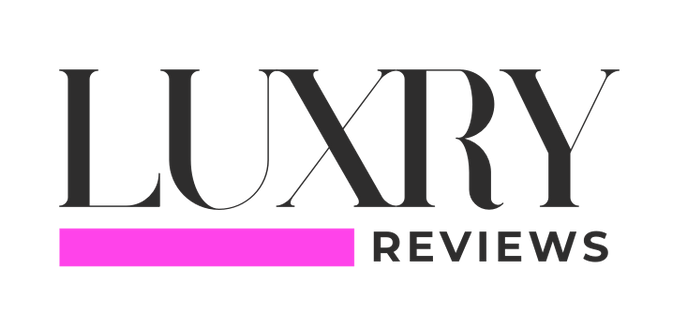Luxury fashion has always been more than just clothing — it’s a statement of identity, craftsmanship, and cultural prestige. In 2025, luxury clothing brands continue to dominate global fashion, offering everything from timeless haute couture to modern streetwear-inspired collections. With demand for exclusivity, sustainable practices, and iconic designs rising, the luxury fashion market is stronger than ever.
In this ultimate guide, we’ll explore the top luxury clothing brands of 2025, highlight emerging designers making waves, share tips on identifying authentic luxury apparel, and answer your most asked questions. Whether you’re a fashion enthusiast, a collector, or someone simply curious about the world of high-end fashion, this guide will take you through the glittering world of designer labels.
What Defines a Luxury Clothing Brand?
Before diving into the list, it’s important to understand what sets a luxury clothing brand apart from standard fashion.
- Craftsmanship: Luxury garments are meticulously crafted, often by skilled artisans using traditional techniques passed down for generations.
- Materials: Only the finest fabrics are used — from Italian silks to rare cashmere and organically sourced leather.
- Heritage: Many luxury brands carry over 50–100 years of history, shaping cultural trends across decades.
- Exclusivity: Limited production runs and iconic collections ensure that only a select few own these pieces.
- Price & Perception: Beyond materials, luxury fashion is about brand prestige, status, and timeless appeal.
This is why high-end fashion brands like Gucci, Louis Vuitton, and Chanel remain aspirational symbols worldwide.
Top Luxury Clothing Brands in 2025
Luxury fashion is ruled by timeless giants, but each year new collections and designs reshape their dominance. Below is a curated list of the most influential luxury clothing brands in 2025, blending heritage with modern innovation.
Gucci
Few names resonate as loudly as Gucci. Founded in 1921, the Italian brand has transformed into a cultural icon — from its horsebit loafers to bold prints and GG monogram.
- Known for: Bold creativity, luxury streetwear blends, and iconic handbags.
- 2025 highlight: Expanding sustainable collections with recycled materials.
Louis Vuitton
Founded in 1854, Louis Vuitton is synonymous with timeless elegance. While its bags often take the spotlight, its clothing line embodies French sophistication.
- Known for: Classic monograms, modern tailoring, and travel-inspired pieces.
- 2025 highlight: The men’s line under Pharrell Williams continues to push cultural boundaries.
Chanel
French maison Chanel remains the epitome of elegance. From Coco Chanel’s revolutionary suits to Karl Lagerfeld’s iconic legacy, the brand continues to redefine femininity.
- Known for: The little black dress, tweed jackets, and haute couture.
- 2025 highlight: Expanding into gender-fluid collections while keeping timeless classics intact.
Prada
Prada is celebrated for its minimalism, sharp tailoring, and intellectual approach to fashion. Its nylon collections revolutionised casual luxury.
- Known for: Innovative fabrics, bold campaigns, minimalist luxury.
- 2025 highlight: A mix of AI-designed patterns in limited drops.
Dior
Founded in 1946, Dior’s New Look revolutionised women’s fashion. Today, it continues to lead haute couture and men’s luxury streetwear under Kim Jones.
- Known for: Haute couture, luxury gowns, and chic tailoring.
- 2025 highlight: Dior’s sustainability push with eco-couture.
Versace
If luxury could scream boldness, it would be Versace. From baroque prints to glamorous dresses, Versace is unapologetically flamboyant.
- Known for: Bright colours, loud prints, red carpet dresses.
- 2025 highlight: Streetwear-infused couture blending modern and traditional aesthetics.
Balenciaga
Balenciaga has consistently pushed boundaries — from avant-garde silhouettes to luxury sneakers that define trends.
- Known for: Oversized fits, futuristic designs, chunky sneakers.
- 2025 highlight: Futuristic tech-wear and collaborations with AI-based designers.
Valentino
Valentino is a symbol of romance and elegance in Italian couture. Famous for its flowing gowns and “Valentino red.”
- Known for: Red carpet dresses, haute couture, Italian refinement.
- 2025 highlight: A luxury menswear expansion with timeless cuts.
Hermès
Founded in 1837, Hermès is one of the most exclusive luxury houses in the world. Beyond its Birkin bags, its clothing epitomises restrained elegance.
- Known for: Handmade craftsmanship, silk scarves, understated luxury.
- 2025 highlight: Expanding equestrian-inspired apparel for new audiences.
Burberry
British label Burberry has been iconic since 1856, especially for its trench coats. Over the years, it has embraced both classic and modern luxury aesthetics.
- Known for: The trench coat, plaid patterns, and timeless British fashion.
- 2025 highlight: AI-driven personalisation for luxury customers.
Emerging Luxury Fashion Labels in 2025
While heritage brands dominate, popular luxury clothing labels are emerging with innovative approaches:
- Fear of God: Blending streetwear and luxury tailoring.
- Jacquemus: French minimalism with playful twists.
- The Row: Founded by Mary-Kate and Ashley Olsen, redefining quiet luxury.
- Marine Serre: Known for crescent moon motifs and eco-friendly designs.
- Peter Do: A rising star in minimal luxury tailoring.
These labels show that luxury fashion houses aren’t just about history — they’re about evolution.
How to Identify Authentic Luxury Clothing
With the counterfeit market booming, knowing how to spot authentic pieces is crucial.
- Check labels & stitching: Luxury brands use flawless stitching and premium labels.
- Serial numbers: Most pieces come with authenticity codes.
- Price check: If it seems too good to be true, it probably is.
- Retail source: Only buy from official stores or trusted luxury resellers.
Why People Choose Luxury Clothing Brands
Luxury clothing isn’t just about clothing — it’s about experience.
- Status & Prestige: Wearing Dior or Gucci reflects personal achievement.
- Investment Value: Items like Hermès scarves and Chanel jackets often appreciate.
- Sustainability: Many luxury brands now lead in eco-fashion.
- Craftsmanship: The difference in cut, fabric, and finish is undeniable.
Buying Luxury Clothing: Tips & Guide
Where you buy matters as much as what you buy.
- Official boutiques: Best for exclusivity and personalised service.
- Luxury e-commerce sites: Farfetch, Net-a-Porter, and official brand websites.
- Vintage markets: Chanel blazers or Dior gowns from past collections often resell at high value.
- Resale apps: Verified platforms like Vestiaire Collective ensure authenticity.
FAQs
What is the most popular luxury clothing brand in 2025?
Gucci and Louis Vuitton remain the most globally recognised in 2025, with Chanel close behind.
Which luxury clothing brands are worth investing in?
Chanel jackets, Hermès scarves, and Louis Vuitton monogram pieces hold strong resale value.
What is the difference between luxury and designer clothing?
Luxury brands focus on exclusivity, heritage, and craftsmanship. Designer brands can be high-end but not necessarily as exclusive.
Are luxury clothing brands sustainable?
Yes, many are now adopting eco-friendly fabrics, AI-driven efficiency, and recycling programs.
Which luxury brand is the most affordable?
Brands like Jacquemus and Fear of God offer entry-level luxury compared to Hermès or Chanel.
Conclusion
The world of luxury clothing brands in 2025 is a fascinating mix of heritage, innovation, and cultural influence. From icons like Gucci and Chanel to emerging labels like Jacquemus, luxury fashion continues to redefine style and exclusivity.
Whether you’re shopping to invest, make a statement, or simply explore high-end fashion, these brands represent the pinnacle of elegance and creativity.
👉 Ready to explore more? Visit Luxry Reviews to dive deeper into the world of luxury fashion and discover reviews, guides, and insights into the labels shaping the industry.




